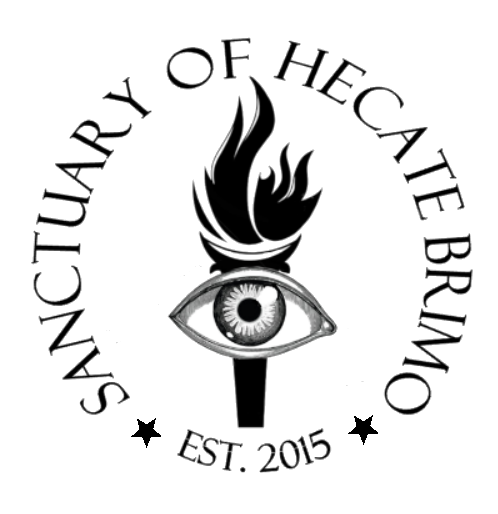What is Right Speech?
In the CoH and in the Sanctuary of Hecate Brimo we follow the Five Virtues:
These are guidelines to help us use the right path to move towards the place where we can exist with our suffering but not allow it to take over our lives.
We can also see this same message in the Four Agreements - "Be Impeccable with words." falls directly in line with this mindset.
Is it true? Is it helpful? Is it kind? Is it necessary?
So many times in social media before I began to practice this I felt the urge to battle on the internet. I'm sure if you search this blog you'll find dozens of "rants" where I'm yelling into the void my opinion and my words that are cutting, hateful and unhelpful. Each day I work to stop that behavior. I work to challenge myself with impeccable words, true words, helpful words and kind words. As part of my journey living with Hecate Brimo and following the path of the Buddha I still struggle from time to time and fall back into a negative space. I don't dwell in that negativity when I stray off the path. I realign and start my journey again.
What does your path guide you? Do you have a similar teaching to the eightfold path? Do you have the four agreements? What do you do to right the ship when you stumble?
Take some time and ponder these questions. Now take the right action.
Blessings
Rev. Renee Sosanna Olson
Keybearer to the Covenant of Hekate - Founder of the Sanctuary of Hecate Brimo
-----------------------------------------------------------------------------------
Full content of the five virtues from the COH Website:
– Sympathy and/or concern for others who are suffering or find themselves in an undesirable position. A person attempting to develop the virtue of Compassion within their daily life and practice would desire to aid in the alleviation of any undesirable situation or at the very least not be a contributing factor towards it.
Real Life Example – You could try to help the homeless or less fortunate be they of the two or four legged variety. Volunteering at local shelters or organizing food drives are great ways to learn and show compassion.
Courage
– Strength or character or fortitude to stand firm in your convictions and face adversity or distress without fear. A person attempting to develop the virtue of Courage within their daily life and practice may chose to stand firm against those who would chose to undermine their beliefs or convictions or to speak out against those who hurt and undermine others.
Real Life Example – Try standing up for someone you or your friendship group may deem unpopular. Also when someone shows remorse for a wrongdoing some people will continue to be angry and unforgiving. Instead state your position calmly (in itself an act of courage) and then allow the situation to pass.
Temperance
– Moderation and self-control are both acts of Temperance. A person attempting to develop the virtue of Temperance within their daily life and practice may chose to restrict some part of their life be that thought or action in an attempt to find a balance rather than choosing to allow extremes.
Real Life Example – Try abstaining from certain types of food or drink or showing restraint in discussions online. An example would be to learn to hold one’s tongue and listen a bit more before jumping into an argument.
Justice
– Moral and physical rightness are both aspects of Justice, as is the sometimes contradictory act of behaving fairly towards other people. A person attempting to develop the virtue of Justice within their daily life would strive to act fairly, truthfully and with personal integrity when dealing with others and themselves.
Real Life Example – Try to treat others fairly, in action and tone be it online or in person. Try to not pass judgement on another based upon your own feelings for a person, your understanding of the situation or hearsay. There are often two (or more) sides to a story and the truth lies somewhere between. If the truth cannot be ascertained then try being impartial.
Wisdom
– To have the common sense, foresight and understanding to think or act in a manner most objectively and beneficially to any given situation. A person attempting to develop the virtue of Wisdom within their daily life would strive to apply their knowledge and experiences in a prudent and practical way.
Real Life Example – Try volunteering to share on a topic that you are knowledgeable on with a local group or center. Offer to do a guest blog post or write an article for an eZine on a particular subject.























